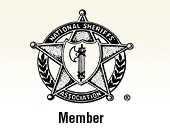

"Your dedication to this issue is making a better and
brighter tomorrow for our nation. I truly value your insight."
- Vice President Joseph R. Biden Jr. (2011)

- Home
- Agency Self Assessment
Agency Self Assessment
The International Association of Chiefs of Police (IACP) has created five tools to help leaders take a look at their agency operations with respect to:
- Protection Order Enforcement
- Firearms and Domestic Violence
- Domestic Violence by Police Officers
- Sexual Assault Case Management
- Response to Stalking
The assessments do not cover all aspects of law enforcement response to these crimes. It aims to touch on key topics that should help guide agencies to a more thorough evalution. Hopefully the answers, or lack of answers along with feedback can be used to focus training and improve policies and prcatices. It can build awareness of agency statistics and data related to crimes of violence against women, develop a stronger understanding of state laws/statutes and the implications for your agency and determine what internal improvements are necessary.
Hopefully these Agency Self-Assessments will be useful tools for you as you internally monitor your department’s response to crimes of violence against women and strengthen your response to the community you serve.
Sex Assault Case Managment
In your jurisdiction, what is the average annual number of reported adult sexual assaults?
What is the annual average number of reported attempted adult sexual assaults?
What percentage of reported assaults are determined to have been drug-facilitated (a drug is administered to a victim)?
What is the statute of limitations for adult sexual assault in your state?
In your jurisdiction, what percentage of reported sexual assaults are perpetrated by someone known to the victim?
What percentage of adult sexual assault cases are cleared as baseless for lack of supporting evidence?
What percentage of adult sexual assault cases are cleared as false reports?
What percentage of adult sexual assault cases are referred to your local prosecutor?
What percentage of adult sexual assault cases are accepted for prosecution?
Do your supervisors conduct timely reviews of:
Every initial report of adult sexual assault? Yes No Unsure
Each sexual assault case prior to final clearance disposition? Yes No Unsure
Do your sexual assault investigations routinely look for the following pre-assault behaviors by the perpetrator:
Electronic contact? Yes No
Monitoring/Surveillance? Yes No
Grooming (building trust, manipulating)? Yes No
Stalking? Yes No
Do your investigators ever ask an adult reporting to have been sexually assaulted to submit to a polygraph examination? Yes No Unsure
If yes, describe the circumstances:
How often is a polygraph examination used with adult sexual assault victims? Never Seldom Regularly
Are victims of other crimes polygraphed? Never Seldom Regularly
Does your agency have a type of “do not investigate” form for victims to sign when they decline to have their report of a sexual assault investigated? Yes No
If yes, describe the circumstances under which such a form is used:
Does your dept. policy establish a timeframe for when such a form can be presented to a victim? Yes No
If yes, what is that timeframe?
How many times a year is such a form used by your agency? Never Seldom Regularly
Does your agency accept anonymous reports (victim reports without self identifying) of sexual assault? Yes No
Does your agency accept 3rd party reports (provided by person other than victim) of sexual assault? Yes No
Does your department seek warrants for suspect forensic exams? Never Seldom Regularly
Does your jurisdiction have a backlog in testing sexual assault evidence kits? Yes No
How many kits are currently backlogged?
Has your jurisdiction received federal Forensic DNA Backlog Reduction Grant funds? Yes No Unsure
Does your agency actively participate in a Sexual Assault Response Team (SART)? Yes
Protective Order Enforcement
How do your state laws address the service of orders of protection:
Methods for service?
Timeframe for service?
Fee(s) for service?
While on scene, do your officers routinely inquire about the existence of an order of protection? Yes No
Can your officers obtain temporary/emergency orders of protection for victims of domestic violence? Yes No
For victims of stalking? Yes No Are these orders available at all hours – including weekends and holidays? Yes No
How long do temporary/emergency orders last in your jurisdiction?
What is the maximum length of a permanent order in your state?
Does your jurisdiction issue orders of protection for:
Victims of dating violence (without prior cohabitation or child in common)? Yes No
Victims of same sex intimate partner violence? Yes No
Minors? Yes No
If minors can obtain orders of protection, do they need consent from parent or guardian? Yes No
When an order of protection expires, what victim notification procedures does your agency follow if a respondent seeks to reclaim firearms?
Are your officers trained how to assist victims of domestic violence and stalking with safety planning? Yes No
If yes, at what point(s) does an officer offer this help?
What procedures does your agency follow when a victim reports a violation of an order of protection?
What measures are taken when the respondent to the order is not on the scene?
When a protection order is violated, in what percentage of cases does the offender return to court to face a judge (approximately)?
Are your officers trained to enforce orders of protection issued by other jurisdictions? Yes No
Have your officers been trained to conduct lethality assessments with victims? Yes No with perpetrators? Yes No
If yes, what tool is used to make an assessment?
According to your protocols, which cases require an assessment be conducted?
Who conducts them?
At what point(s) does the assessment occur?
Does your agency policies strictly prohibit the arrest of petitioners for protection order violations? Yes No
Firearms and Domestic Violence?
How do your state laws address the possession of firearms by individuals subject to DV-related orders of protection?
Do your state laws prohibit firearm possession by people convicted of misdemeanor crimes of Domestic Violence?
What directions are given to protection order respondents regarding firearm surrender procedures?
Which agency is responsible for providing these directions?
How is your agency made aware of individuals who have been ordered to surrender firearms and the timeframe specified for them to do so?
Does your agency seize firearms from prohibited persons? Yes No
Under what circumstances?
While on the scene, do your officers routinely inquire about surrender of firearms? (for safekeeping, victim safety)
Are your officers restricted from facilitating third party transfers of firearms on site? Yes No
What procedures does your agency follow to manage third-party transfer of seized/forfeited/surrendered firearms?
What procedures does your agency follow for returning firearms when a protection order expires or a conviction is expunged?
Are victims notified of the return of firearms? Yes No
Does your department policy restrict officers under an order of protection from possessing their duty weapon? Yes No
If no, are they allowed access to all weapons with which they qualify? Yes No
Are they allowed to take their firearms with them when they go off duty? Yes No
Describe the procedures your agency follows for an officer under a protection order to surrender their personal (non-exempt) firearms.
Department Response to Stalking
In your jurisdiction, what is the average monthly number of reported stalking cases?
Are you aware of your state’s stalking law/statute? Yes No
How does the law/statute define “stalking ?
Are your officers instructed to routinely inquire about stalking behaviors while on the scene of:
Domestic violence: Yes No Trespass/property damage: Yes No Sexual assault : Yes No Burglary /theft: Yes No
Other crimes?:
Do your officers receive training regarding stalking and course of conduct crimes? Yes No Dispatch? Yes No
Are your officers/detectives routinely trained on investigating stalking cases? Yes No
Do your officers seek subpoenas for searching social media websites? Yes No
What technological resources does your department have to thoroughly investigate these crimes?
Does your department routinely collaborate with prosecutors on stalking training? Yes No
What procedures does your department have in place with surrounding jurisdictions, including campuses, in order to thoroughly investigate cases that cross boundaries?
Do you have memoranda of understanding established? Yes No
Does your department participate in a VAW Task Force? (e.g. SART, DV Coordinating Council) Yes No
Fatality Review Board? Yes No
Are your officers trained on how to assist victims of stalking with safety planning? Yes No
If yes, at what point(s) does an officer offer this help?
Does your agency partner with victim advocates? Yes No
Do advocates assist victims with safety planning? Yes No
Do your officers provide victims with names/contact for local victim service providers? Yes No
Do your officers utilize threat/risk assessment tools with victims? Yes No With perpetrators? Yes No
If yes, what tool?
According to your protocols, which cases require an assessment be conducted?
Does your department utilize stalking kits with victims? Yes No
Do your officers suggest the use of stalking logs to victims? Yes No
Collaborate with advocates to use these tools? Yes No
While on scene, do your officers routinely inquire about the existence of any orders of protection? Yes No
What procedures does your agency follow when a victim reports a violation of an order of protection?
What measures are taken when the respondent to the order is not on the scene?
Can victims obtain orders of protection for stalking? Yes No
Who is eligible?
Are these orders available at all hours – including weekends and holidays? Yes No
What is the length of a stalking order in your jurisdiction?
What protections are in place for victims of stalking who are minors?
Domestic Violence by Police Officers
What percentage of your agency’s officers live outside your jurisdiction?
Is your agency involved with written Memorandums of Understanding in your region detailing terms under which an employing agency would be notified by a responding agency of a domestic violence incident involving one of their officers? Yes / No / Unsure
What provisions in your policy ensure that officers responding to a domestic violence call that they determine involves another officer (from your agency or an outside agency) document the incident and notify the supervisor on duty?
Would you have an outside agency handle the administrative investigation of an officer alleged to have committed an act of domestic violence? Yes / No / Unsure
Do you routinely or periodically check on your officers’ record/background? Yes / No
Which systems and sources are checked?
Does your agency have an early warning system in place? Yes / No
If yes, is it a computerized system? Yes / No
Do your state laws prohibit firearm possession by individuals subject to Orders of Protection? Yes / No
Does your department policy restrict officers under an order of protection from possessing their duty weapon? Yes / No
If no, are they allowed access to all weapons with which they qualify? Yes / No
Are they allowed to take their firearms with them when they go off duty? Yes / No
Describe the procedures your agency follows for an officer under a protection order to surrender their personal (non-exempt) firearms.
How are family members of officers notified of the existence of a department policy on domestic violence by police?
Is your policy posted on your website? Yes / No
Do you have a member of your command staff designated for family members of officers to contact with concerns about domestic violence? Yes / No
An agency policy on domestic violence should apply to all sworn and civilian employees






Mark Wynn Consulting | info@markwynn.com | 2500 Murfreesboro Road - Suite 105 - PMB 135 | Nashville, TN 37217
Phone: (615) 360-3994 | Fax: (615) 469-0823




